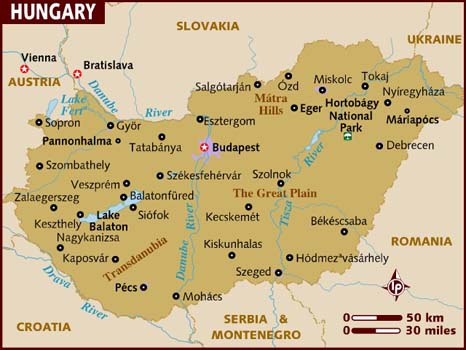Hungarians march against Victor Orban
January 8, 2019 | Expert Insights

Many thousands of Hungarians marched through central Budapest, voicing anger at their right-wing government and its recent controversial policies.
Background
Hungary, a country located in Central Europe became a democratic parliamentary republic on October 23rd 1989. This marked the tearing down of the Berlin wall and the end of the communist era. The 28-year-old democracy began with the election of centre-right coalition party Fidesz headed by Viktor Orban.
With the Fundamental law in place, the old constitution was substituted with a new one. Although the new constitution held most of the 1989 legislations, it was amended to suit the agenda of whichever party was ruling. The new laws curbed the power of the Constitutional Court, allowed the dismissal of public employees without just cause and introduced state-backed media houses. The parliament in June 2018 passed a set of laws penalising NGO’s and individuals alike, who assisted in illegal immigrant asylum claims, officially called the “stop soros” law.
The latest bill popularly nicknamed “the slavery law” hikes the annual overtime hours that employers can require from 250 to 400. In addition, the calculation for overtime payment was to be pushed to three years. The bill incited the citizens of Hungary to take to the streets in mass demonstrations displaying the country’s dissatisfaction of the new laws.

Analysis
The protest extended into a second month — and a new year — a campaign now emerging as one the most serious challenges yet, to the authority of Viktor Orban, the four-term prime minister.
“Resign! Resign!” demonstrators chanted as a column of marchers stretching many city blocks made its way along Andrassy Avenue, the city’s grand central boulevard. By late afternoon, the crowd had filled the sprawling plaza in front of the Hungarian Parliament, near the banks of the Danube.
Orban has helped pioneer a breed of autocracy in a country that threw off the shackles of communist authoritarianism three decades ago, and he serves as inspiration for other hard-line leaders in Europe and beyond. His authority in Hungary is normally unquestioned. The political opposition is divided and leaderless, civil society is hemmed in by punishing laws, much of the media is in his pocket and supposedly independent branches of the government are beholden to the ruling party.
The elections in April 2018 saw Orban win a two-thirds parliamentary majority, that gives him license to change the constitution at will. Yet this new protest offered fresh evidence that Orban may have blundered with recent moves that have provoked a backlash more intense and sustained than any in recent years.
“After the election, we had apathy. But then something changed,” said Bernadette Szel, an independent lawmaker who has helped spearhead the protests. “This is fake democracy and people are fed up with it.” Among the factors driving the unrest are the eviction of Central European University, the creation of a parallel justice system that will allow the government to bypass independent courts and the dead-of-night removal of a statue that paid tribute to a hero of the failed 1956 anti-Soviet uprising.
However, the most important trigger for the demonstrations was legislation, jammed through the parliament in December 2018 with little debate, that allows employers to force workers to perform as many as 400 hours of overtime per year. Employers can delay payments for up to three years. The workplace code, dubbed “the slave law” by opponents, was the government’s response to an ultralight labour market that has left employers struggling to find workers. Orban has been highly successful in attracting major European firms to Hungary, using low wages to cement the country’s reputation as the continent’s factory floor.
However, hundreds of thousands of people have abandoned Hungary, seeking higher pay and greater freedoms elsewhere. The workers who are left behind are increasingly chafing under the strain.
Assessment
Our assessment is that Viktor Orban’s unpopular policies are finally meeting with public resistance. We believe that this may lead to a major shift in Hungarian politics in the form of resignations of ministers or a rejuvenated opposition before the next General Elections.








Comments